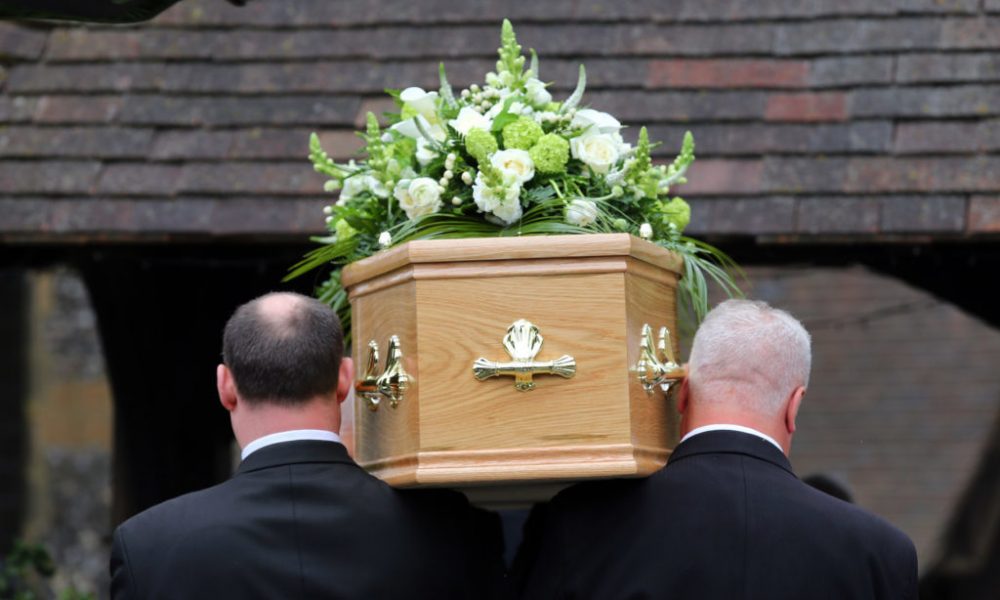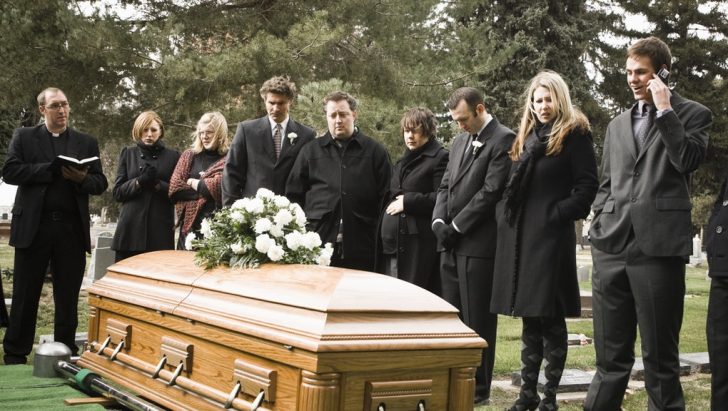
Who Inherits Your Debt After Your Death? You’ll Be Surprised to Find the Answer

Even wondered what happens if a person passes on when they are knee-deep in debt? Of course, if they owned lots of valuable assets, these can then be used to pay off any outstanding amounts. However, if they had nothing, it becomes a whole other ball game. The burden could even fall to those who survive the deceased, compounding an already difficult situation.
According to Experian data, at least 73% of deceased adults passed away with outstanding debts in 2016. Back then, the average balance per individual was $61,554 inclusive of mortgage debt, or $12,875 excluding it.

In 2016, 73% of deceased adults were in debt at the time of their death
Did your jaw just drop? It would be understandable, as these are insanely huge amounts. There’s, therefore, need to find out what happens to debt after your passing, and how you can protect your loved ones in the event of such an unfortunate occurrence.
One-off Situations
Philip Ruce, a Minnesota attorney with special interest in estate planning says that most children fear that they will inherit their parents’ debts, and the fear is the same between spouses. However, the lawyer says that inheriting debt rarely happens, but there are those one-off situations.
Naturally, a deceased’s estate is usually responsible for any unpaid debts. In the case of secured loans, assets attached are sold and proceeds used to pay off the creditors, or they can decide to repossess the asset and handle it as they see fit. The goal, after all, is for the lenders to recover their money.

A deceased’s estate is responsible for any unpaid debts
However, if a family member is unwilling to let go of said asset(s), then they have no choice but to come to an arrangement with the lender on how they’ll continue making payments in service to the amount owed.
For unsecured loans, the first order of business is usually to pay them off with available estate funds, and that is before anyone receives a dime in inheritance. But what if the available funds aren’t enough to service all debts?
As the attorney puts it, such an eventuality deems the estate insolvent. It is, therefore, upon the personal representative or executor to engage the probate system and determine which debts take precedence, and in which order they are to be paid. Once these are paid off and all funds are depleted, any outstanding amounts to which the deceased was solely responsible for are then discharged.
Co-signed Loans
If it just so happens that the deceased had a co-signer when taking out these loans, however, this other party remains responsible for the debt. Depending on the creditor’s policy, Ruce says that the co-signer may find themselves in a tough spot where they are required to pay off the outstanding amount immediately and in a lump sum. Such cases are rare though, the attorney affirms.

If it was a co-signed loan, the co-signer steps up to take responsibility
So, how can you protect your loved ones from such scary situations? For starters, understand all terms before taking out any loan. Make sure to inquire what happens in the event of your death, then discuss it with your family before making the final decision.
Also, keep accurate records on all debts you’ve taken out, and provide your loved ones with easy access to all your accounts. And according to Huffpost, taking out a life insurance policy could help your family pay off debts when that time comes.
More in financial advisor
-
`
Amazon’s $4 Billion Investment in Anthropic
In a move highlighting the intensifying battle in the tech industry, Amazon recently announced its substantial investment of up to $4...
November 24, 2023 -
`
Is the Future of Shopping Cashless?
The way we shop has significantly transformed in recent years, thanks to the rise of cashless payments. Traditional methods of exchanging...
November 18, 2023 -
`
Jeff Bezos and Lauren Sánchez’s $500 Million Superyacht
Set your course for a journey into the world of maritime magnificence as we unveil the $500 million superyacht belonging to...
November 11, 2023 -
`
Unlocking True Sustainability in Business and Finance
In the race towards a greener future, businesses and financial institutions have been progressing at a snail’s pace despite their public...
November 5, 2023 -
`
The Business of FaZe Clan
In the ever-evolving landscape of professional gaming and esports, few names have left as indelible a mark as FaZe Clan. Established...
October 26, 2023 -
`
7 Benefits of Shopping Sustainably
In a world that’s becoming increasingly aware of the environmental crisis, sustainable shopping has emerged as a powerful tool for individuals...
October 17, 2023 -
`
How the U.K. Became the Supercar Capital of the World
Picture the narrow streets of Milan with the roar of a Lamborghini passing by or the Autobahn with a Porsche zipping...
October 13, 2023 -
`
Fidelity’s Guide to Retirement: How to Join the Millionaire Club
Picture this: You are lounging on a yacht, the sun’s warm rays are making the turquoise waters shimmer. And the best...
October 6, 2023 -
`
Unlocking Opportunities in the Age of Automation
The world is on the brink of a robotic revolution, and it’s not just about the machines taking over. Companies pioneering...
September 28, 2023















You must be logged in to post a comment Login